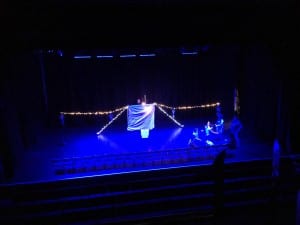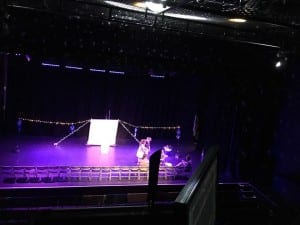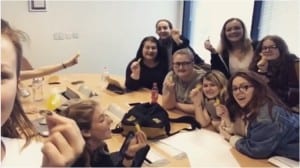We did it! Show day is complete!
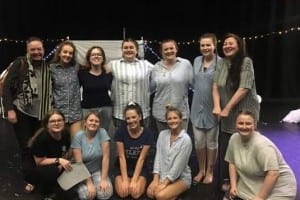
Looking back and reflecting on Sherbet Lemon Theatre’s debut performance of The Truth About Bedtime… I can only beam with pride and joy. The response we have received, for me, can only be a testament for all of our hard work over the past 16 weeks.
As this may be my last blog post for a while, I wouldn’t want to spend it telling you the ins and outs of how show day went and how it can be improved for next time. However, if you’re a bit inquisitive like myself and would like to have peek at how things went, you can have a look at my stage manager performance report here.
Stage Manager Performance Report
I think for me, one of the greatest things to see happen on show day was our aspirations with our audience truly come to life. It has been a goal for all of us to really connect to our audience, ensure that they were comfortable and to spark feeling within them. I think this was recognised throughout all aspects of our performance, and the positive feedback we have been receiving only reaffirms this. Firstly, our intention of using verbatim engaged and connected us to our audience before we even stepped foot onto the stage. I believe that by using verbatim and engaging with the public before the show is a great way to ensure they feel a part of the show, especially through using their words within our performance. This element within itself, I believe, would meet Arts Council England’s (ACE) criteria perfectly. ACE articulate that they “invest public money to make great art that has an impact on everyone’s lives” (ACE, 2018). And what better way to include everyone? A show about sleep using verbatim!
We also extended our pre-set to half an hour, allowing enough time for our audience to come in and grab a hot drink, some biscuits and familiarise themselves with the space and the actors. This was achieved as one audience member commenting “the hot drinking chocolate and the blankets before the show were a really nice touch and I loved how the cast engaged with the audience before the show and during” (Donna, 2018).
For me and my job, I ensured that everyone with accessibility needs would be catered to on arrival. As engagement for everybody is vital to Sherbet Lemon Theatre, I ensured and liaised with Front of House that all people with accessibility needs, which was a total of four people, would not struggle when experiencing our performance. This was important to all of us as it further enables the inclusion of all people to engage with our production.
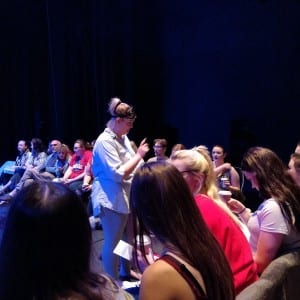
I am unbelievably happy with how everything went and how our audience perceived the show. Sherbet Lemon Theatre have had so much fun creating this, and on top of all of the great responses, I don’t think we’re ready to let The Truth About Bedtime… go just just yet. We’re currently in discussions about how and where we can go with show next, each time making the performance more inclusive for more people!
I have learnt a lot from stage managing this production, lots about communication and organisation, and will take this experience with me through my career.
Theatre is to be engaging and inclusive to everyone, and whether Sherbet Lemon Theatre do take The Truth About Bedtime… further or not, I have thoroughly enjoyed making the production inclusive to as many people as possible.
Sweet Dreams,
C.M.
Works Cited:
Arts Council England (undated) What We Do. London: Arts Council England. Available from https://www.artscouncil.org.uk/what-we-do-0 [accessed 25 May 2018].
McConnell, H. (2018) Sherbet Lemon Theatre after their debut performance. [image]
Lincoln School of Fine and Performing Arts (2018) We’re enjoying the pre-show hot chocolate and pyjama party at @SherbetLTheatre‘s show! [image]. Available from https://twitter.com/LSFPA_Lincoln/status/998630673618530304 [accessed 22 May 2018].
Donna, P. (2018) Comment left on blog post. Available from https://sherbetlemontheatre.blogs.lincoln.ac.uk/2018/05/22/show-day/#comment_count. [accessed 24 May 2018].
